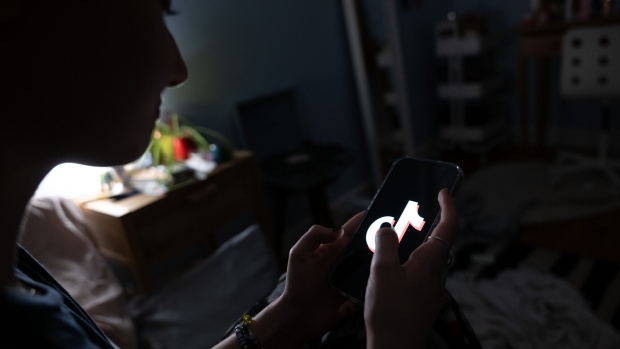Mar 25, 2024
Florida Bans Social Media for Kids Under 14
, Bloomberg News

(Bloomberg) -- Florida Governor Ron DeSantis signed a bill prohibiting minors under 14 from having social-media accounts, following similar efforts in other states that have been challenged in court.
The Florida law also requires parental permission for 14- and 15-year-olds to have accounts at companies such as Meta Platforms Inc. and TikTok Inc. While older kids face no restrictions, the legislation forces all social-media users in the state to submit identification documents to verify their ages.
“Social media harms children in a variety of ways,” DeSantis said in a statement Monday, adding that the measure, known as House Bill 3, “gives parents a greater ability to protect their children.”
The Florida legislation is part of a broader effort by some states to clamp down on social media firms amid rising concern over their impact on youth mental health and their role in spreading sexually explicit content. States such as Arkansas and Ohio have enacted laws requiring minors to secure parental approval for social media accounts. But those measures have faced legal challenges, as has a children’s digital privacy law in California.
Netchoice, a lobbying group that includes Meta, TikTok and Alphabet Inc.’s Google, had urged DeSantis to veto the bill, saying it was unconstitutional and would prove ineffective in protecting Floridians.
“HB 3 forces Floridians to hand over sensitive personal information to websites or lose their access to critical information channels,” said Carl Szabo, NetChoice’s vice president and general counsel. “This infringes on Floridians’ First Amendment rights to share and access speech online.”
Meta has said publicly that the company is in favor of national legislation related to teenage users, instead of state-by-state laws. It has also been open about its preference for age verification to happen at the App Store level. A company spokesperson reiterated these points Monday, but declined to comment specifically about the new Florida law.
TikTok and Alphabet didn’t immediately respond to requests for comment.
In addition to the parental-consent requirements for 14- and 15-year-olds, the Florida law extends an age-verified ban on social media to 13-year-olds. A 1998 law already restricts how children under 13 access the internet, which is why many social media companies technically don’t allow younger users to start accounts. Congress has considered raising the age of those restrictions to users under the age of 17, but that legislation hasn’t advanced.
--With assistance from Anna Edgerton and Kurt Wagner.
(Updates with Meta response in seventh paragraph)
©2024 Bloomberg L.P.





